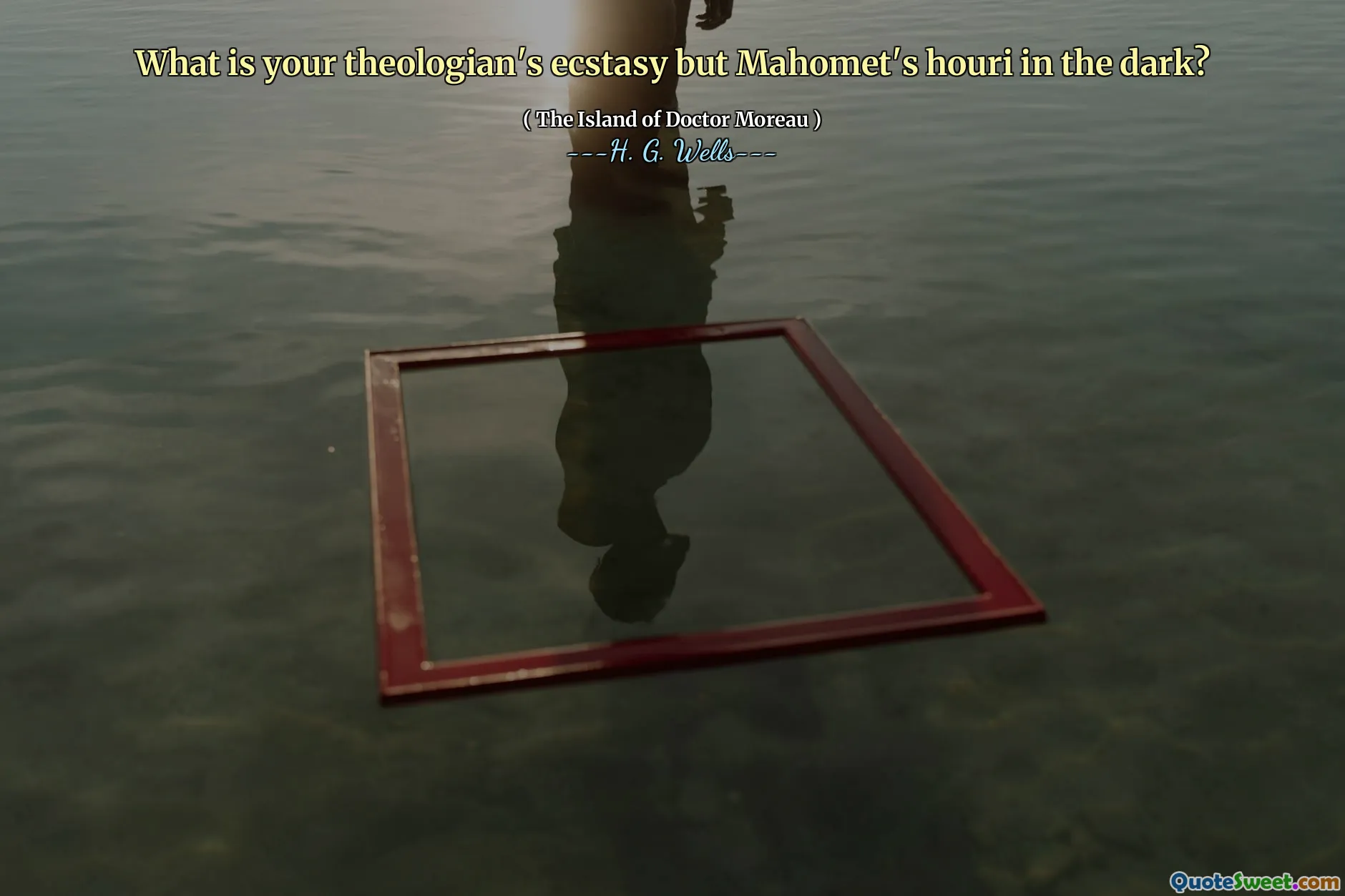
What is your theologian's ecstasy but Mahomet's houri in the dark?
In "The Island of Doctor Moreau," H.G. Wells explores themes of morality, human nature, and the consequences of unchecked scientific experimentation. The narrative revolves around Doctor Moreau, a scientist who conducts inhumane experiments to transform animals into humanoid creatures. This raises questions about ethical boundaries and the essence of humanity itself. The juxtaposition of civilization and savagery is central to the story, drawing attention to the darker sides of human ambition and intellect. The quote, "What is your theologian's ecstasy but Mahomet's houri in the dark?" invites reflection on the nature of desire and the ideals we chase. It suggests that what some may consider lofty spiritual or moral aspirations can, in reality, reflect base desires, akin to the mythological houris of paradise. This perspective challenges readers to confront the ambiguity of human desires and the complexity of pursuing higher truths—implying that both theological pursuits and scientific endeavors may share a common darkness beneath their surface.
In "The Island of Doctor Moreau," H.G. Wells explores themes of morality, human nature, and the consequences of unchecked scientific experimentation. The narrative revolves around Doctor Moreau, a scientist who conducts inhumane experiments to transform animals into humanoid creatures. This raises questions about ethical boundaries and the essence of humanity itself. The juxtaposition of civilization and savagery is central to the story, drawing attention to the darker sides of human ambition and intellect.
The quote, "What is your theologian's ecstasy but Mahomet's houri in the dark?" invites reflection on the nature of desire and the ideals we chase. It suggests that what some may consider lofty spiritual or moral aspirations can, in reality, reflect base desires, akin to the mythological houris of paradise. This perspective challenges readers to confront the ambiguity of human desires and the complexity of pursuing higher truths—implying that both theological pursuits and scientific endeavors may share a common darkness beneath their surface.











